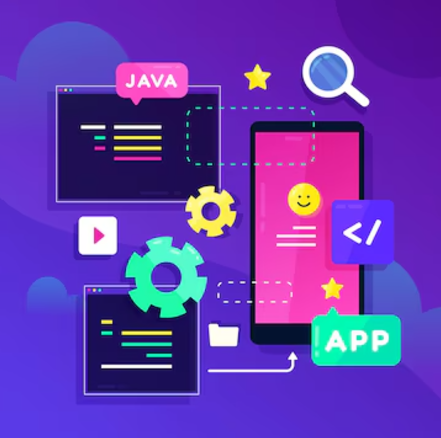The digital world is ever-changing. Have you ever wondered how businesses manage to stay ahead of the curve by providing solutions specific to their needs? Custom software development is still redefining innovation and scalability for businesses in a variety of industries in 2025. But why is it so important in the fiercely competitive economy of today? How can companies ensure they're using the appropriate tools to increase productivity and profitability? Let's get started and go over what you need to know.
What Is Custom Software Development?
Custom software development involves designing, creating, deploying, and maintaining software solutions tailored to the specific needs of an organization. Unlike off-the-shelf software, custom solutions are personalized to meet unique business requirements, enhancing operational efficiency and providing a competitive edge.
Key Features of Custom Software Development
- Personalization: Custom solutions cater specifically to a business's needs.
- Scalability: easily adaptable as your business grows or evolves.
- Enhanced Security: Designed with the highest security standards to protect sensitive data.
Why Custom Software Development Matters in 2025
The software landscape is evolving rapidly. From AI integration to the increasing importance of cybersecurity, custom software is no longer a luxury; it’s a necessity.
1. Embracing Emerging Technologies
In 2025, businesses must integrate cutting-edge technologies like artificial intelligence (AI), machine learning (ML), and the Internet of Things (IoT). Custom software allows seamless incorporation of these advancements, giving companies a tech-savvy edge.
2. Addressing Unique Business Challenges
Every organization has its pain points. Custom software offers tailored solutions to solve specific challenges, whether optimizing supply chain management, enhancing customer relationship management, or automating repetitive tasks.
3. Boosting Efficiency and Productivity
Custom software reduces manual interventions and integrates seamlessly with existing systems, streamlining workflows and enhancing productivity.
The Custom Software Development Process in 2025
Developing custom software isn’t just about writing code. It’s a meticulous process that requires collaboration and innovation.
Step 1: Requirement Analysis
Understanding the specific needs and goals of the business is the foundation of any successful project.
Step 2: Design and Prototyping
Developing wireframes and prototypes ensures the final product aligns with business objectives and user expectations.
Step 3: Development and Testing
Coding begins after the design is approved. Simultaneously, rigorous testing ensures the software functions flawlessly.
Step 4: Deployment and Maintenance
Once deployed, continuous monitoring and updates ensure the software remains efficient and secure over time.
Benefits of Custom Software Development
Investing in custom software brings a wealth of benefits, from improved user experiences to better ROI.
1. Competitive Advantage
Custom software differentiates businesses by providing tools tailored to unique processes, setting them apart in a crowded marketplace.
2. Long-Term Cost Efficiency
While the initial investment may seem high, custom software eliminates recurring costs associated with licensing and additional features in off-the-shelf solutions.
3. Improved Data Security
Custom software is designed to meet an organization’s security protocols, reducing the risk of breaches.
4. Seamless Integration
Unlike generic software, custom solutions integrate effortlessly with existing tools and systems, ensuring a smooth transition.
Choosing the Right Development Partner
Selecting the right team for custom software development is as crucial as the software itself. Collaborating with a reliable software development company ensures the process is seamless and delivers exceptional results.
Key Considerations When Selecting a Partner
- Expertise: Does the company have experience in your industry?
- Portfolio: Check their previous work to gauge quality and innovation.
- Support: Ensure they offer robust post-deployment support.
Trends Shaping Custom Software Development in 2025
The future of custom software is dynamic and exciting, shaped by emerging trends and technologies.
1. AI-Driven Development
AI tools streamline coding processes, making development faster and more efficient.
2. No-Code and Low-Code Platforms
These platforms democratize software development, allowing even non-technical users to contribute to the process.
3. Focus on Sustainability
Green coding practices ensure the software is energy-efficient and eco-friendly.
4. Enhanced User Experience (UX)
UX design prioritizes accessibility and usability, catering to a diverse audience.
Conclusion: Is Custom Software Development Right for You?
So, how do you decide if custom software is the right choice for your business? Start by evaluating your goals and pain points. Custom software is ideal if you need a solution that scales with your business, offers enhanced security, and integrates seamlessly with your processes.
Custom software development in 2025 isn’t just about keeping up—it’s about staying ahead. Ready to transform your operations with a tailored solution? The future of your business might just depend on it.





Comments